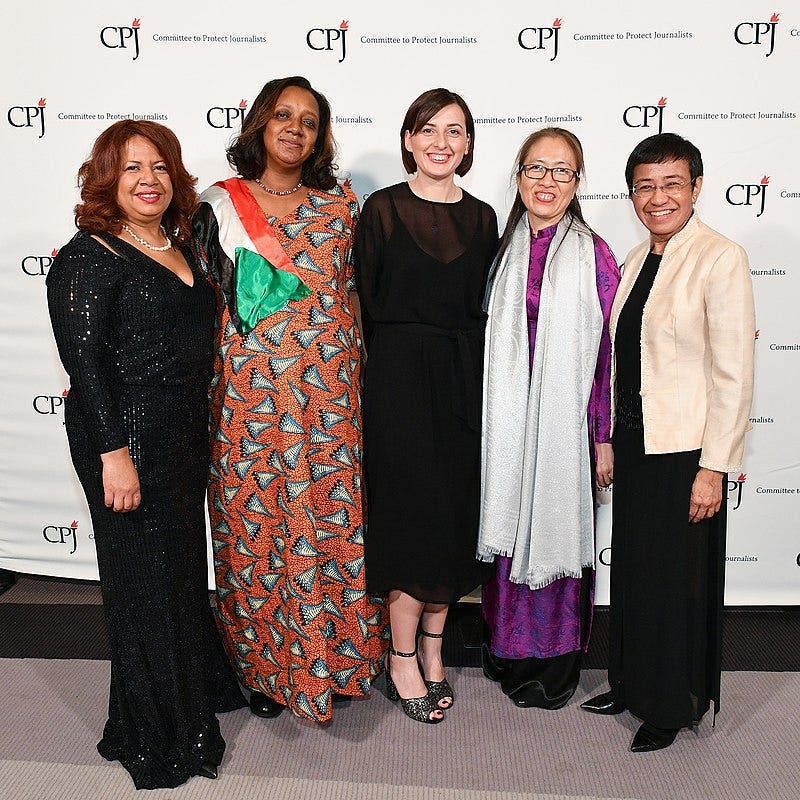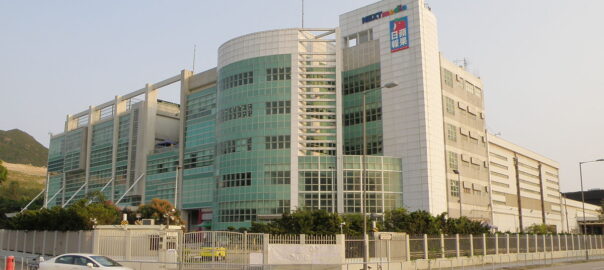By Kent R. Kroeger (Source: NuQum.com; August 12, 2020)
The temperature outside here in New Jersey may be 92 °F, but events in the past few weeks and the release of a new film documenting the arrest of Philippine journalist Maria Ressa have put a distinct chill in the air for journalists and free speech advocates.
Abetted perhaps by national governments feeling increasingly empowered during the coronavirus pandemic to exert control over their citizens, press and speech freedoms are being rolled back across the globe at an alarming rate:
On July 16, Moscow police raided the offices of Foundation for Fighting Corruption, an organization founded by Russian opposition politician Alexei Navalny, reportedly over his sharp criticism of individuals promoting a Russian constitutional reform extending President Vladimir Putin’s possible tenure as the Russian leader.
On August 4, Malaysian police raided Al Jazeera’s Kuala Lumpur office and seized two computers soon after the government announced they were investigating Al Jazeera for sedition, defamation and violation of the country’s Communications and Multimedia Act. A July 3rd airing of the Qatar-based news organization’s 101 East televised program raised the ire of Malaysian authorities after criticizing the government’s treatment of undocumented migrant workers during the coronavirus pandemic.
On August 7, a new documentary film, A Thousand Cuts, was released in the U.S. about Maria Ressa, the founder of the internet news site Rappler, and the efforts of the Philippine government under President Rodrigo Duterte to spread disinformation and restrict press freedoms. Ressa, herself, was arrested on February 13, 2019, for “cyber libel” after Rappler published a story about a Philippine businessman’s alleged lending of his sports utility vehicle to since-deceased Chief Justice Renato Corona as a bribed form of favor. Ressa was found guilty on June 15, 2020 and faces between six months and six years in prison and a fine of $8,000.

And on Sunday, Chinese government authorities in Hong Kong arrested Apple Daily founder Jimmy Lai Chee-ying and nine other journalists and pro-democracy activists for colluding with foreign entities under a new national security law implemented in June that broadened the definitions of acts of secession, subversion, terrorism and collusion considered criminal. One of Beijing’s justifications for this new law was to limit large gatherings of people, including protest marches, which can hasten the spread of the coronavirus.
World leaders from the U.S., Japan, Canada, Europe and Britain expressed dismay at the arrests, suggesting this indicated Hong Kong’s new national security law was meant primarily to suppress dissent, not save lives.
During a similar incident in Hong Kong in April, U.S. Secretary of State Mike Pompeo issued a statement condemning the arrest of Hong Kong journalists.
“Beijing and its representatives in Hong Kong continue to take actions inconsistent with commitments made under the Sino-British Joint Declaration that include transparency, the rule of law, and guarantees that Hong Kong will continue to ‘enjoy a high degree of autonomy.”
If only this concern for journalists and free speech by Pompeo and other Western leaders could be taken seriously.
As long as Julian Assange is held indefinitely in a U.K. prison for publishing U.S. state secrets, the West has little credibility on Hong Kong
Wikileaks founder Julian Assange is today being held in a U.K. prison, originally for avoiding extradition to Sweden for questioning on sexual assault charges (which were ultimately dropped by Swedish authorities), and currently for hearings on his extradition to the U.S. on charges of conspiracy to commit computer intrusion by helping Chelsea Manning, then serving in the U.S. Army, gain access to classified information intended for publication on Wikileaks. Since Assange’s imprisonment in the U.K., the U.S. has added 17 additional espionage charges under the 1917 Espionage Act.
U.S. case law arising from the Espionage Act has a long history and is too complicated to easily summarize (A good starting resource is here). But it is fair to say that Manning committed an espionage crime for which she was convicted by court-martial and sentenced to 35 years at Fort Leavenworth. Her sentence was later commuted by President Barack Obama on January 17, 2017, though Manning was later imprisoned in March 2020 for refusing to testify before a grand jury investigating Assange.
What is far from clear is the crime Assange and Wikileaks committed by publishing the whistleblower information provided by Manning. The U.S. Supreme Court’s landmark decision — New York Times Co. v. United States, 403 U.S. 713 (1971) — making it possible for The New York Times and The Washington Post newspapers to publish the then-classified Pentagon Papers without risk of government censorship or punishment looms over the U.S. case against Assange like a butcher’s knife over a ribeye roast.
The U.S. case against Assange appears to rest on the accusation that he personally helped Manning hide her intrusion into classified military information systems, thereby making him an accomplice to the established espionage crime.
[There is a young, ambitious lawyer somewhere in the U.S. today that is going to ensure her career reputation by defending Assange in a U.S. court on these dubious charges.]
That Assange sits in a U.K. prison because of a U.S. District Attorney’s indictment built around the 1917 Espionage Act is particularly odious if you believe in the U.S. Constitution’s First Amendment.
Consider the troubling origins of The Espionage Act itself, passed on June 15, 1917 and which aimed to protect military intelligence by making it illegal to share classified information. Its stated intent during The Great War (World War I) was to target Germans collecting intelligence and planning acts of sabotage within U.S. borders. But as such laws tend to do, seemingly rational intentions were quickly overwhelmed by human flaws and it was German-Americans and their German-language newspapers that became the tangible targets.
After its passage, the 1917 Espionage Act (along with the 1917 Trading with the Enemy Act) had an immediate and chilling effect on U.S. journalism, particularly German-American newspapers which were common throughout the country prior to World War I. However, by the end of the war, the total number of German publications decreased from 522 in 1917 to 278 in 1920.
That same law is again being used to silence a journalist.
Assange sits in a U.K. prison under the accusation of espionage crimes from 2010; but, in truth, resides there because of the political crime of using his publication — Wikileaks — to attack someone who was the presumptive President of the United States in 2016. That was a moral crime, according to the U.S. news media barons who were exposed as establishment tools in the 2016 U.S. presidential election.
U.S. journalists attack Assange — not because of the Manning documents — but because he allowed Wikileaks to be used against Hillary Clinton
Since his arrest at the Ecuadorian embassy in London on April 11, 2019, Assange has been incarcerated in Her Majesty’s Belmarsh Prison (also in London).
After examining Assange in Belmarsh Prison, United Nations Special Rapporteur on Torture and Other Cruel, Inhuman or Degrading Treatment or Punishment, Nils Melzer, concluded Assange showed symptoms typical of psychological torture and in a subsequent interview with the U.K. news site The Canary accused Western journalists of “spreading abusive and deliberately distorted narratives” regarding Assange and the charges against him.
“Since 2010, when Wikileaks started publishing evidence of war crimes and torture committed by US forces, we have seen a sustained and concerted effort by several States towards getting Mr. Assange extradited to the United States for prosecution, raising serious concern over the criminalisation of investigative journalism in violation of both the US Constitution and international human rights law,” contends Melzer. “Since then, there has been a relentless and unrestrained campaign of public mobbing, intimidation and defamation against Mr. Assange, not only in the United States, but also in the United Kingdom, Sweden and, more recently, Ecuador.”
Regardless of the empty pabulum that continues to emit from the mainstream U.S. media about Assange (Jimmy Dore continues to be our finest critic of the U.S. news media, particularly with respect to Assange), I believe justice will ultimately prevail in Assange’s favor.
Working on Assange’s behalf will always be Wikileaks’ original mission:
“Wikileaks exists to defend the practical rights of whistleblowers to bring their information to the public”
That isn’t a criminal activity. That is what liberal democracies desperately need for their own legitimacy.
And if you think Assange is the only victim of this organized campaign against press freedom, I invite you to learn more about the case of former CIA operative Jeffrey Sterling.
If there is anything powerful people hate most, its freedom of the press.
Reporters Without Borders reported recently that media freedom worldwide has deteriorated by 12 percent since their index was created in 2013. The proportion of countries where press freedom is “very bad” has increased by two points to 13 percent during since then.
The U.S. is among those nations where press freedoms remain under pressure. Regarding events in 2019 that threatened U.S. press freedoms, Reporters Without Borders note in their 2020 Report on World Press Freedom:
In March 2019, a leaked document revealed the US government was using a secret database tracking journalists, activists and others who border authorities believed should be stopped for questioning when crossing certain checkpoints along the US-Mexico border. A couple months later, the Justice Department charged Wikileaks co-founder Julian Assange with 17 counts of the WWI-era Espionage Act. If he is convicted, this would set a dangerous precedent for journalists who publish classified US government information of public interest moving forward.
It is in this context that the U.S. and its allies lecture China on its reprehensible actions in Hong Kong.
Let there be no doubt. China is actively crushing press and speech freedoms in Hong Kong.
Let there also be no doubt that the U.S. and U.K. are doing the same in their own countries.
- K.R.K.
Send comments and lectures to: kroeger98@yahoo.com
or tweet me at: @KRobertKroeger1
